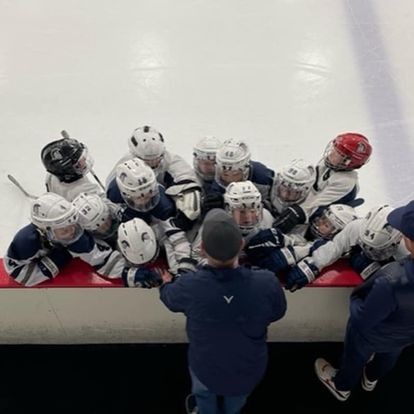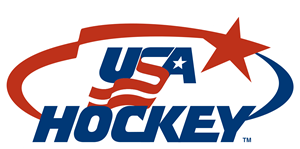Expectations for Coaches
BE PREPARED
- Evolve your coaching with the game. Keep up to date on the rules, techniques, and systems of hockey.
- Be on time and prepared for games and practices. Have a plan for what you want to accomplish in the practice or game.
- Have players arrive at least 45 minutes before games. Develop a warm up routine that is eventually self-led by players on the team.
FOCUS ON DEVELOPMENT
- Winning is an objective, but not the only one, nor the most important one. Care more about your players and their development than winning a particular game.
- Organize practices that are fun and challenging for your players. Understand that players get better by doing. Challenge your players to be better every time they touch the ice.
- Give all players the opportunity to improve their skills, gain confidence, and develop self-esteem.
- Recognize that each player is an individual with different needs and motivations. Take the time to get to know each of your players. Make adjustments where possible.
- Work with the Director of Player Development to develop practice plans that help fit your team and each individual player.
- Be generous with your praise when it is deserved. Praise players for good play, but also hard work, teamwork, and sportsmanship.
BE A GOOD COMMUNICATOR
- Be a good listener.
- Provide parents with an update of what is going on with the team at least once a month.
- Maintain an open line of communication with your players’ parents. Explain the goals and objectives for the team.
- Respond to emails or other communications from the Hockey Staff in a timely manner (within 24 hours).
- Communicate issues with the Hockey Director when they arise, and if unsure, it is better to communicate.
- Use appropriate language and never berate the officials.
- Ensure communications with minors are consistent with the SafeSport Electronic Communication Policy. For players under 18, send electronic communications to the player’s parents.
BE A POSITIVE INFLUENCE ON PLAYERS AND FAMILIES LIVES
- Focus on the overall development of your players. Stress good habits both on and off the ice.
- Promote an inclusive environment with your language and actions to ensure that players and families of all backgrounds feel welcome.
- Be a positive role model for your players. Be mindful that your behavior is a reflection of you, your team, and the WHA. You are required to abide by the Zero Tolerance Policy, all policies from U.S. Center for Safe Sport including but not limited to the Electronic Communication Policy, and all policies of hockey governing bodies relevant to the age group you are coaching (e.g., AAU, AHAI, USA Hockey).
NEVER COMPROMISE SAFETY OF PLAYERS
- Be alert to the physical safety of players.
- Ensure players adhere to the concussion policy.
- The WHA prohibits all types of physical abuse, sexual abuse, emotional abuse, bullying, threats, harassment and hazing, all as described in the USA Hockey SafeSport Handbook.
- Never engage in, or tolerate, behavior that is or may be perceived as physical abuse, sexual abuse, emotional abuse, bullying, threats, harassment, or hazing.
- USA Hockey’s Reporting Policy requires that every employee or volunteer must report actual, perceived, or suspected violations. To report any actual, perceived, or suspected violations please go to usahockey.com/making a report, usahockeysafesport@usahockey.org, or by calling 1-800-888-4656.



Oops!
You have unsaved elements
Please save or cancel the pending changes to the elements within your page and then try saving again.



